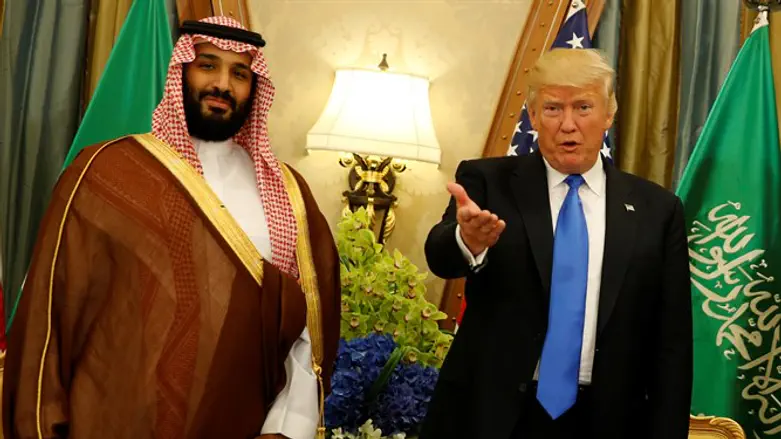
Saudi Arabia has reassured Arab allies it will not endorse any Middle East peace plan that fails to address Jerusalem’s status or the “right of return” of so-called “Palestinian refugees”, Reuters reported on Sunday.
King Salman’s private guarantees to Palestinian Authority (PA) chairman Mahmoud Abbas and his public defense of long-standing Arab positions in recent months have helped reverse perceptions that Saudi Arabia’s stance was changing under his powerful young son, Crown Prince Mohammed bin Salman, diplomats and analysts said.
This in turn has called into question whether Saudi Arabia can rally Arab support for a new push to end the Israeli-PA dispute, with an eye to closing ranks against mutual enemy Iran.
“In Saudi Arabia, the king is the one who decides on this issue now, not the crown prince,” said a senior Arab diplomat in Riyadh, according to Reuters. “The U.S. mistake was they thought one country could pressure the rest to give in, but it’s not about pressure. No Arab leader can concede on Jerusalem or Palestine.”
PA officials told Reuters in December that Prince Mohammed had pressed Abbas to support the U.S. plan despite concerns it favored Israel.
Reports at the time said the Trump administration’s plan offers the PA noncontiguous parts of Judea and Samaria, with limited sovereignty and without eastern Jerusalem as its capital city. Jewish settlements in Judea and Samaria, for the most part, would not be destroyed or moved.
In addition, Palestinian Authority Arabs would not have the "right of return" to Israel.
The Crown Prince also later said that Israel has a "right" to a homeland, before King Salman reaffirmed his support for the PA in a phone call with Trump.
The PA envoy to Riyadh, Basem Al-Agha, told Reuters that King Salman had expressed support for Palestinians in a recent meeting with Abbas, saying: “We will not abandon you ... We accept what you accept and we reject what you reject.”
He said that King Salman naming the 2018 Arab League conference “The Jerusalem Summit” and announcing $200 million in aid for Palestinians were messages that Jerusalem and refugees were back on the table.
Saudi authorities did not respond to a request for comment on the current status of diplomatic efforts.
Trump’s senior adviser, Jared Kushner, and his representative for international negotiations, Jason Greenblatt, have been trying to recruit support for Trump’s peace initiative.
Diplomats in the region say Washington’s current thinking, conveyed during a tour last month by the top White House officials, does not include eastern Jerusalem as the capital of a Palestinian state, a “right of return for refugees” or a freeze of Israeli construction in lands claimed by the Palestinians, according to Reuters.
Kushner and Greenblatt have not presented a comprehensive proposal but rather disjointed elements, which one diplomat said “crossed too many red lines”, the report said.
Instead, they heavily focused on the idea of setting up an economic zone in Egypt’s Sinai Peninsula with the adjacent Gaza possibly coming under the control of Cairo, which Arab diplomats described as unacceptable.
In Qatar, Kushner asked Emir Sheikh Tamim bin Hamad al-Thani to pressure Hamas to cede control of Gaza in return for development aid, the diplomats said.
One diplomat briefed on the meeting said Sheikh Tamim just nodded silently. It was unclear if that signaled an agreement or whether Qatar was offered anything in return.
“The problem is there is no cohesive plan presented to all countries,” said the senior Arab diplomat in Riyadh. “Nobody sees what everyone else is being offered.”
Trump recently declined to offer a timetable for announcing his proposed Middle East peace plan, saying only that "progress" had been made in tackling the complex issue.
"A lot of progress has been made in the Middle East, a lot," he said in late June after a meeting at the White House with King Abdullah II of Jordan.
The plan has been met with resistance from Abbas, who has refused to engage with the U.S. in protest over Trump’s recognition of Jerusalem of Israel’s capital and his relocating the U.S. embassy to the city.
